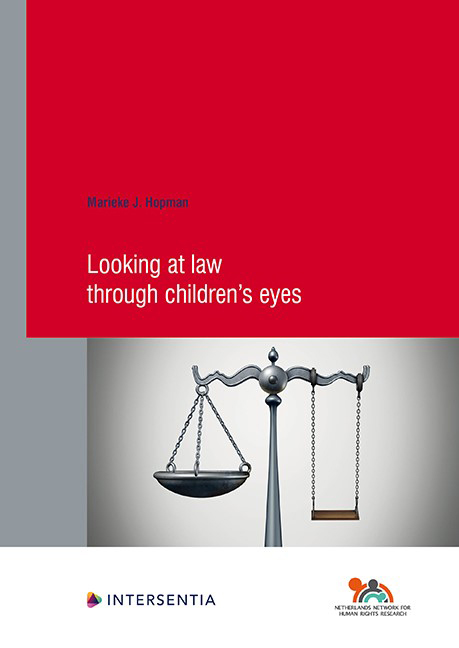Chapter 8 - Reflection & Conclusion
Published online by Cambridge University Press: 25 May 2021
Summary
LOOKING BACK & LOOKING FORWARD
In this chapter I will answer, and reflect on, the first part of the main question for this PhD research, namely:
Can violations of children's rights in different cultural, social and political contexts be better understood if analyzed within a legal pluralist framework, taking into account the child's perspective and the relations of power corresponding to the different legal orders surrounding children? And, consequently, how can this understanding be used to improve the concrete situation of children?
This question consists of several sub-questions that each merit individual reflection, namely:
1) Is it possible to understand children's rights violations if analyzed within a legal pluralist framework (as developed in this thesis)?
a. Can this be done, taking into account the child's perspective?
b. Can this be done, taking into account the relations of power corresponding to the different legal orders surrounding children?
2) If it is possible, in general, to understand children's rights violations if analyzed within a legal pluralist framework (as developed in this thesis), is this possible for children's rights violations in different cultural, social and political contexts?
3) If all this is possible, does it lead to a better understanding of children's rights violations than when analyzed
a. From non-legal pluralist framework
b. Without taking into account the child's perspective
c. Without taking into account the relations of power corresponding to the different legal orders surrounding children
4) How can this understanding be used to improve the concrete situation of children?
All these questions I will attempt to answer based on the data as presented in previous chapters, as well as a reflection on the theoretical framework and methodology in relation to the three case studies of this thesis. Questions 1–3 will be answered in this chapter, question 4 will be answered in chapter 9. In terms of structure, each paragraph will answer a different sub-question. Where relevant (§8.1, 8.3.1 and 8.3.2), the general answer, in light of the complete research, will be followed by specific answers per case study.
UNDERSTANDING CHILDREN'S RIGHTS VIOLATIONS, ANALYZED WITHIN A LEGAL PLURALIST FRAMEWORK
In chapters 1–4 of this thesis, a theoretical framework and accompanying methodology were developed for a potentially better understanding of children's rights violations.
- Type
- Chapter
- Information
- Looking at Law through Children's Eyes , pp. 351 - 370Publisher: IntersentiaPrint publication year: 2021



